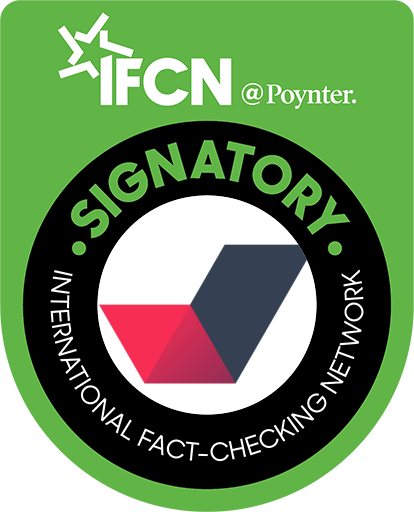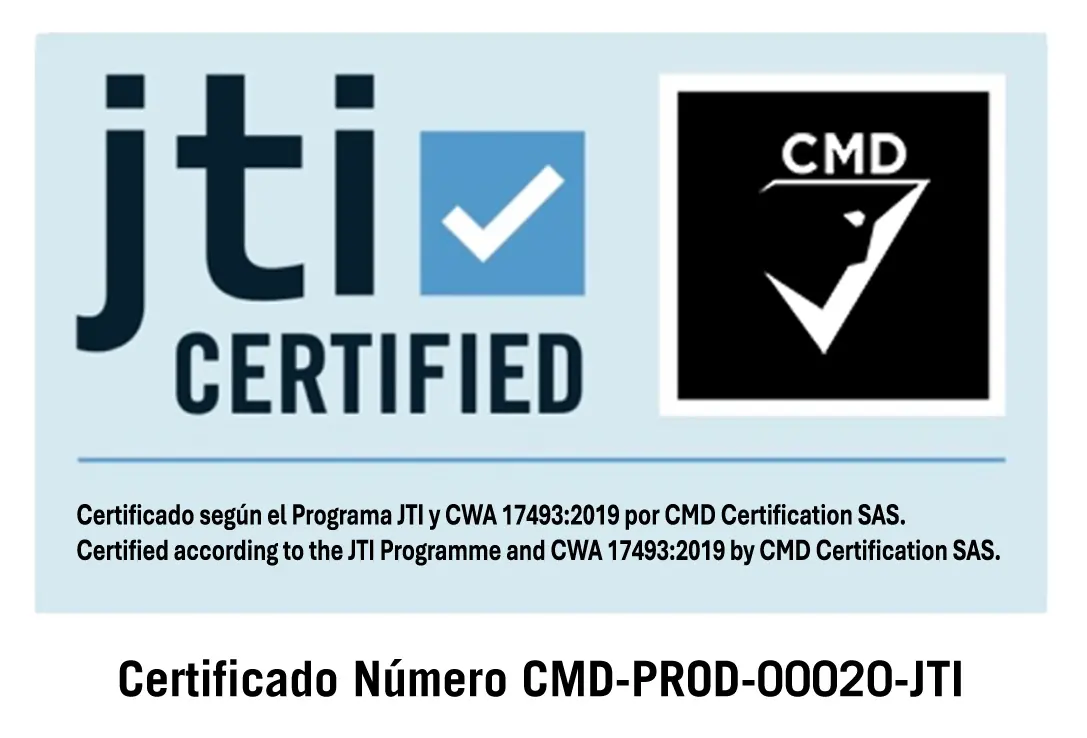Methodology
Methodology for the verification of public discourse
Chequeado selects statements from politicians, economists, businesspeople, union leaders, journalists, public figures, media outlets and other opinion-shaping institutions without discriminating based on their political or ideological orientation.
Once a statement is selected, the original source of the data used is consulted by reaching out to the person who made the statement. If direct access to the original source is possible, other sources are consulted to verify its validity and explain its relevance and impact. If direct access is not possible, alternative avenues are used for fact-checking, such as documents (reports, analyses, or public and private statistics) and interviews with experts. If the person making the statement has a known political affiliation, it is mentioned.
After verifying the data, relevant context is provided to aid understanding. Context refers particularly to the local socio-economic, historical and cultural framework; and, whenever possible, the regional and international context. The goal is to ensure that the fact-checking process goes beyond a purely literal comparison.
To conduct a thorough fact-check, we follow eight steps:
- Select a statement from the public domain.
- Assess its relevance.
- Consult the original source.
- Consult official sources.
5. Consult alternative sources.
6. Place the statement in context.
7. Confirm, qualify or refute the statement.
8. Assign a rating.
Assigning a rating to a statement is not always a straightforward intellectual process, as there may be cases where multiple ratings could apply. Ultimately, the decision is made based on the aspect that needs to be emphasized. The following rating system is used for fact-checking statements made by leaders:
Unverifiable
This rating is exclusively used for defined bodies of text, such as a campaign spot or a brochure. The analyzed statements are not based on facts or data and cannot be verified.
True
The statement has been proven to be true when compared against the most serious and reliable sources and data.
True, but…
The statement is consistent with the available data, but omits some element of the topic or its context.
Debatable
It is not clear whether the statement is true or false. The conclusion depends on the variables used for analysis.
Hasty
The statement could be true, but is based on projections rather than objective data about reality.
Exaggerated
The statement is not strictly true, but the concept or trend it refers to is accurate.
Misleading
The statement may partially coincide with certain data, but has been intentionally or unintentionally manipulated to convey a particular message.
Unsustainable
The statement arises from research with a lack of support or serious methodological errors or is impossible to fact-check.
False
The statement has been proven to be false when compared against the most serious and reliable sources and data.
Chequeado does not fact-check statements of a religious nature, personal statements, strictly sports-related matters, entertainment-related issues, or corruption allegations that are being processed in the judiciary and have not yet concluded.
Chequeado strives for maximum rigor and accuracy, but as it is known, nobody is perfect. Therefore, it is committed to rectifying any inaccurate information it may have disseminated. Please refer to our policy on updates and corrections.
We appreciate the feedback on our methodology from: Martín Becerra, Ingrid Bekinschtein, Robert Cox, Marcelo Leiras, Fabián Repetto, and Luis Alberto Quevedo.
Methodology against viral disinformation
Chequeado selects articles, audios, images and videos from social media platforms it monitors, such as Facebook and Twitter; from private messaging platforms it monitors and from where it receives material to fact-check, such as WhatsApp; and from its own channels, such as the Chequeo Colectivo fact-checking platform and the Readers’ Mailbox ([email protected]). The channel from which the verified misinformation originated is always mentioned in the text.
The following rating system is used for fact-checking viral misinformation:
FALSE
The entire shared content has been proven to be false when contrasted with the actors involved and the most serious and reliable sources and data.
MISLEADING
Some of the shared content may coincide with certain true data but has been manipulated, intentionally or unintentionally, to convey a particular message.
TRUE
The entire shared content has been proven to be true when contrasted with the actors involved and the most serious and reliable sources and data.
UNSUSTAINABLE
The statement arises from research with a lack of support or serious methodological errors, or that is impossible to fact-check.
Fact-checking focuses on factual content that can be contrasted. Promises, comments and/or opinions are not subject to fact-checking, nor are leaked statements made in a private setting. The selection of material to fact-check is done without discrimination based on political, ideological, sexual or ethnic orientation.
The selection of material to verify is based on three criteria: the circulation/virality of the content on social media or other platforms (reach and/or repetition on different platforms), the relevance of the mentioned topic, and/or the severity of the consequences of misinformation on the public (e.g., misinformation that could impact health).
Once the content to fact-check is selected, whenever possible, the original source is consulted to determine its origin and the basis of the primary data. In the case of websites that identify a content creator and provide contact information (phone and/or email), those channels are used for consultation. This step is also followed for information, images and videos that are published directly on social media (not included in a link) and quote their origin.
Additionally, if identifiable, the actors involved/affected by the disinformation are consulted (who, in certain cases, agree to speak, while in others, prefer not to), as well as other sources that can corroborate the validity of the content to be verified.
As with the public discourse verification methodology, the relevant official source (governmental sources at the national, provincial and local levels responsible for the subject under analysis) is consulted. Whether a response is obtained or not, the fact-check can also rely on alternative sources, such as documents (reports, analyses, or statistical compilations) and interviews with specialists.
If the content to be verified is an image or video, available technological tools can be used to determine authorship, publication date and time, and the location where the content was generated.
If a media outlet has published false information and later rectified or removed it, this is explicitly mentioned in the disinformation verification. If this occurs after the fact-check is published, it is noted in the article with an update. This practice is recommended for correcting information.
The sources used are quoted, and whenever possible, the original document and data are included to ensure accessibility for everyone.
When the verified information is false, Chequeado clarifies it in the headline so that readers know the correct data from the outset, and the main aspects of the topic are explained in the first paragraph. In the case of false photos, they are only reproduced with clear markings indicating their falsehood (such as a watermark) and never linked to the sites that originated the disinformation in order to avoid contributing to its circulation.
When dealing with topics such as childhood and adolescence, sexual abuse, suicide, organ donation, vaccines, gender, science, and the environment, among others, Chequeado follows an ethical approach. These subjects are addressed based on specialized guidelines from organizations such as UNICEF, the Pan American Health Organization (PAHO), INCUCAI, or internal documents produced by Chequeado that rely on the most recognized sources in each field.
In the case of materials provided by external contributors, the organization emphasizes the importance of adhering to strict ethical principles, ensuring proper attribution of authorship, and applying rigorous verification procedures. Any information, data, article, or audiovisual material originating from individuals or entities outside the editorial team will be considered external content.
To be published, such content must comply with Chequeado’s verification method, which defines its editorial strategy. If there are concerns about the accuracy or ethical standards of material submitted by external sources, the organization reserves the right not to publish it or to request additional verification before its release.
We appreciate the feedback on the methodology from: Alexios Mantzarlis (IFCN), Claire Wardle (First Draft), Clara Jiménez Cruz (Maldita.es), Cristina Tardáguila (Lupa), Phoebe Arnold (First Draft), and Sérgio Lüdtke (First Draft).
Chequeado is one of the organizations certified by the International Fact-Checking Network (IFCN) at the Poynter Institute. Each year, the organization undergoes an assessment by an independent academic or expert hired by the IFCN to determine whether it meets the five principles of the IFCN Code of Principles. The reviewer then recommends whether the organization should be certified. In Chequeado’s case, that recommendation has always been positive (2017, 2018, 2019, 2020, 2021, 2022 and 2023). The IFCN board makes the final decision on certification. Below, we publish the Code of Principles we commit to, so anyone can monitor compliance and hold Chequeado accountable.
More about our Code of Principles
Ethics, Transparency, and Respect for People
Our culture is the product of our values. We adhere to the highest professional standards and are committed to acting ethically and respectfully.
Use of Artificial Intelligence
At Chequeado, we explore and apply artificial intelligence (AI) tools responsibly, aware of both their opportunities and risks. AI does not replace our work; it complements it. All AI-assisted production is reviewed and approved by our team, which retains final responsibility for everything we publish. Its implementation is always aligned with Chequeado’s mission and objectives, ensuring it helps strengthen the quality, transparency, and trust in our work.
Certifications
International Fact-Checking Network (IFCN)
Chequeado is one of the organizations certified by the International Fact-Checking Network (IFCN) at the Poynter Institute, which promotes excellence and transparency in the verification of public discourse. Each year, an independent external assessor, appointed by IFCN, reviews our work to confirm that we uphold the five commitments established in its Code of Principles, to which Chequeado has adhered since 2017.
Journalism Trust Initiative (JTI)
Chequeado holds the certification of the Journalism Trust Initiative (JTI), an international standard developed by Reporters Without Borders (RSF) that promotes transparency, professionalism, and media credibility. This certification, based on ISO standards, recognizes outlets that implement reliable editorial processes and responsible practices throughout all stages of their journalistic work.
To ensure our sustainability and independence, we have a diversified funding strategy that involves a balance between various sources of financing:
See moreIndividual
donors
Corporate
support
Chequeado’s
own activities
International
cooperation
Accountability
Fundación La Voz Pública para la Verificación del Discurso Público (in English, Public Voice for Public Discourse Verification Foundation) / Chequeado is a non-governmental, non-partisan and non-profit organization, established in 2011 and authorized to operate as such by Resolution No. 1392 of the General Inspection of Justice.

